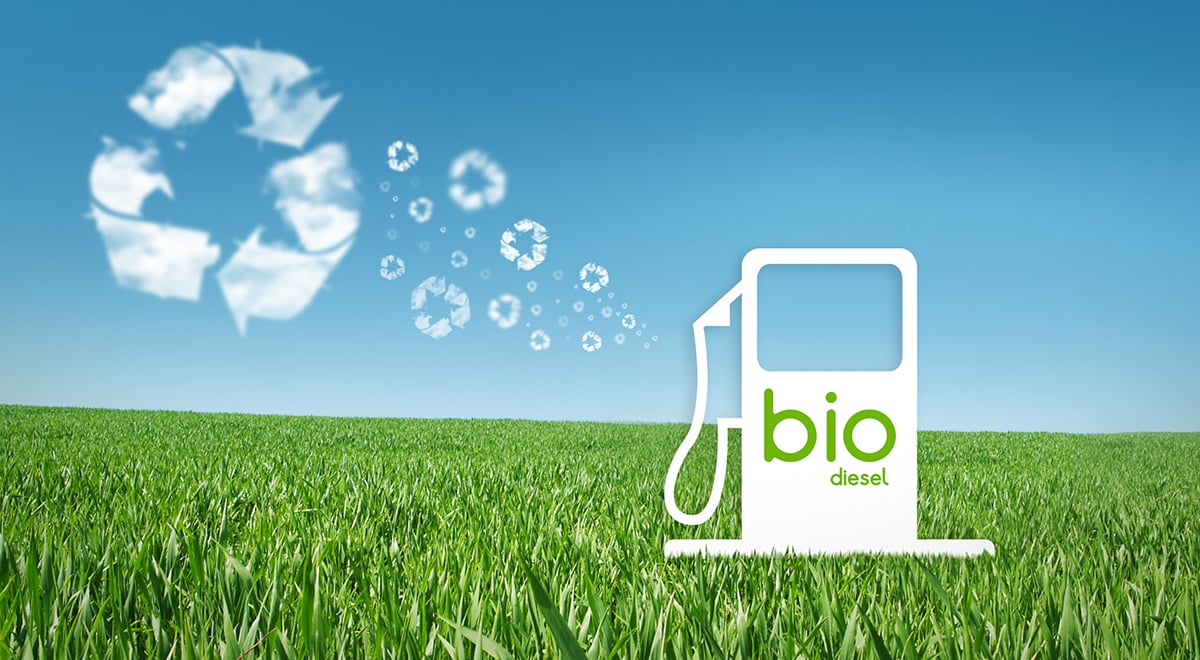The use of biodiesel has been growing significantly for some time. And it’s easy to see why: it’s renewable, clean burning and suitable for use in existing diesel engines. However, it’s important that the fuel is made correctly in order to maximise its efficiency and sustainability. This is where potassium hydroxide (KOH) from Vynova plays an essential role, serving as catalyst in the biodiesel production process.
Biodiesel is a renewable fuel produced from vegetable oils such as rape seed oil, sunflower seed oil, soybean oil and also used frying oils or animal fats. In the transport sector, it is used both when blended with fossil diesel fuel and in pure form. Biodiesel has significant environmental benefits over conventional fossil diesel fuel: it helps to significantly reduce CO2 emissions as well as particulate emissions that are harmful to health.
However, the rise in plant-based biodiesel sources is not without its own challenges. Agricultural land is limited, and biodiesel production takes up land used for food. To help tackle this challenge, used vegetable oils or animal fats can be recycled as feedstock for biodiesel production. Potassium hydroxide from Vynova plays a vital role in this conversion process of waste material to sustainable fuel.
Producing biodiesel: the basics
Biodiesel can be produced from a wide range of raw materials. This includes recycled cooking oil, soybean oil and animal fats. However, the oil is only added in the second stage. In a first step, a caustic catalyst, often potassium hydroxide (KOH), is mixed with an alcohol, usually methanol. Methanol is preferred to ethanol as it has a low cost and is easy to obtain. This methyl catalyst solution is then slowly mixed with the oil. After the complete reaction, the solution needs to set for a few hours. The end result is biodiesel at the top and glycerine underneath.
What is potassium hydroxide?
Potassium hydroxide, also known as caustic potash or KOH, is a white solid inorganic compound with a low environmental impact. KOH is very corrosive and most of its numerous industrial and niche applications exploit its caustic nature and reactivity towards acids. It is also the precursor to most soft and liquid soaps. As Europe’s leading producer of potassium derivatives, Vynova produces liquid KOH at two manufacturing sites, in Tessenderlo (Belgium) and Thann (France), making us the only potassium derivatives producer with two European production sites.
Potassium hydroxide as a catalyst in biodiesel
Good biodiesel uses KOH as its caustic catalyst. It produces a high-quality fuel and is easy to mix with methanol, plus its by-product can be used to make quality liquid soap or fertilizer. It is important to note that KOH is highly hygroscopic, in other words means it absorbs moisture from the air rapidly, and too much moisture will interfere with the biodiesel process and produce too much soap. However, with the Super-critical Methanol Production methodology, this problem can be solved. In this method, the chemical process of creating bio-diesel is carried out under high temperature and pressure, which eliminates contamination of fuel with water.
Contact Vynova
Vynova is a leading supplier of a wide range of potassium derivatives in solution, flake, pellet, granulated or powder forms, and is dedicated to a variety of markets ranging from agrochemicals, food and feed, to pharmaceuticals, consumer care and industrial applications. Find out more about potassium derivatives from Vynova or contact one of our sales representatives here.
#ThePotassiumDerivativesExpert




